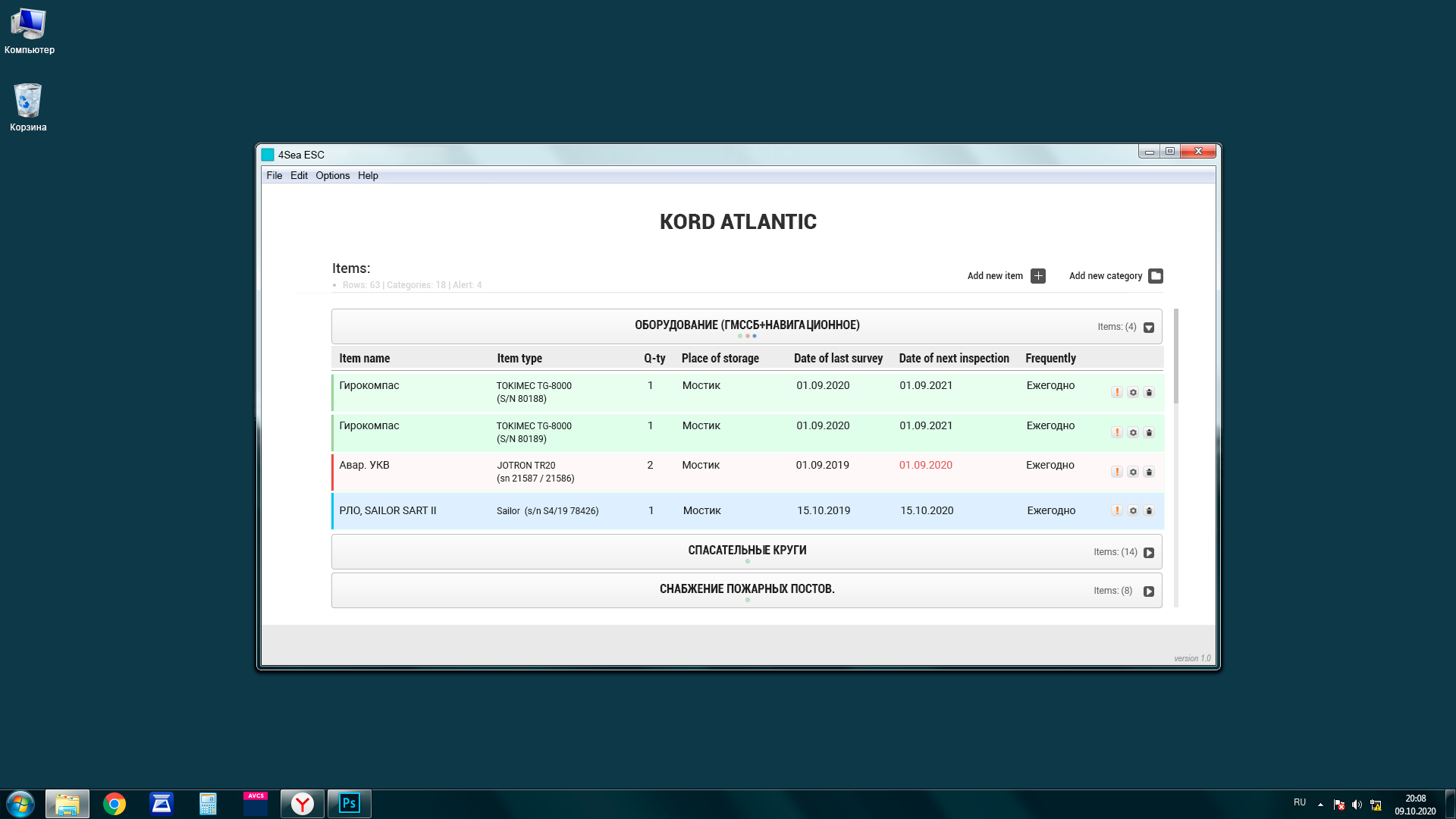Answer the question
In order to leave comments, you need to log in
Which platform to choose for a desktop application, taking into account the support of win XP, 7,8,10?
Good day to all!
The task is to make a special program for the accounting of supply in the company. Now the Excel file is used (I will attach a screenshot of the file).

The company has different PCs, both old ones on HP and new ones from the 10th, it is necessary that this program works on all platforms (it is possible to exclude HP, but support for 7,8,10 is definitely needed).
I also want to avoid installing additional libraries, so that I can open the program on the PC and you can work.
On freelance, they began to ask what platform is needed, C # C ++ Java, Python or Delphi - and I finally can’t cook which one to choose. Naturally, each of the specialists in his field cites his specialization as more reliable, but you need the opinion of independent experts.
I ask for help from those who are engaged in such development, your advice is very much needed.
Here is an approximate layout of the program that should turn out:

Answer the question
In order to leave comments, you need to log in
Yes, XP is still desirable to exclude. Vista added Hoare monitors at the API level and doubled IPv6 sockets with Linux-style IPv4. Hypothetically, it would be possible to switch monitor implementations between XP's, but for some reason the developers did not do this either in commercial compilers or in the open source pthreads port. With IPv6 it's the same story, one could hypothetically prepare two sockets, IPv4 and IPv6, like Firefox did, in preparation for opening a connection, getting a list of IPv6 and IPv4 addresses from DNS, mixing them up without knowing which one would work, just like Firefox did, but a bunch of other things software instead used a dirty hack that Linux has, and in Vista this dirty hack was reproduced, and everyone rushed to use it instead of writing it properly. Nothing to do, too many compatibility issues with XP.
Computers, as you can see, are not new. I worked for these. C# and Java impose trace-based garbage collection without alternative, and it's just a nightmare to work with them. Programs with traceable garbage collection need 5 times more RAM to work well than their objects use. You can look for a graph that will show catastrophic degradation of performance when there is only 2 times more memory than is occupied. Even when there are several such programs, they go to the swap in turn, displacing each other from memory. And some other Kaspersky content of the downloaded swap rigorously checks to avoid. How did I suffer in tech support.
With C ++ there is every chance to dilute the Glucotron. Python combines the best of both worlds: brakes and glucotron. But Glucotron for a different reason, because of the so-called dynamic typing.
And Delphi is quite a working tool. Against glitches, there are typing and range checks, which are disabled by default, but you can enable them. There is no garbage collection. Containers on reference counters can be taken from Spring4D.
c# with a limitation on the version of the framework is quite normal. Java, c++ are also suitable. Bury Delphi back.
Still, try to get rid of the ancient ideas about how all this should be done and consider the option of an online service. Yes, for this you will have to start working a little differently, but it will also allow you to do things that the current organization of work makes impossible.
And now any freelancer can write an accounting system on web technologies for a penny.
The 1C Enterprise platform is ideal for solving accounting problems.
Didn't find what you were looking for?
Ask your questionAsk a Question
731 491 924 answers to any question